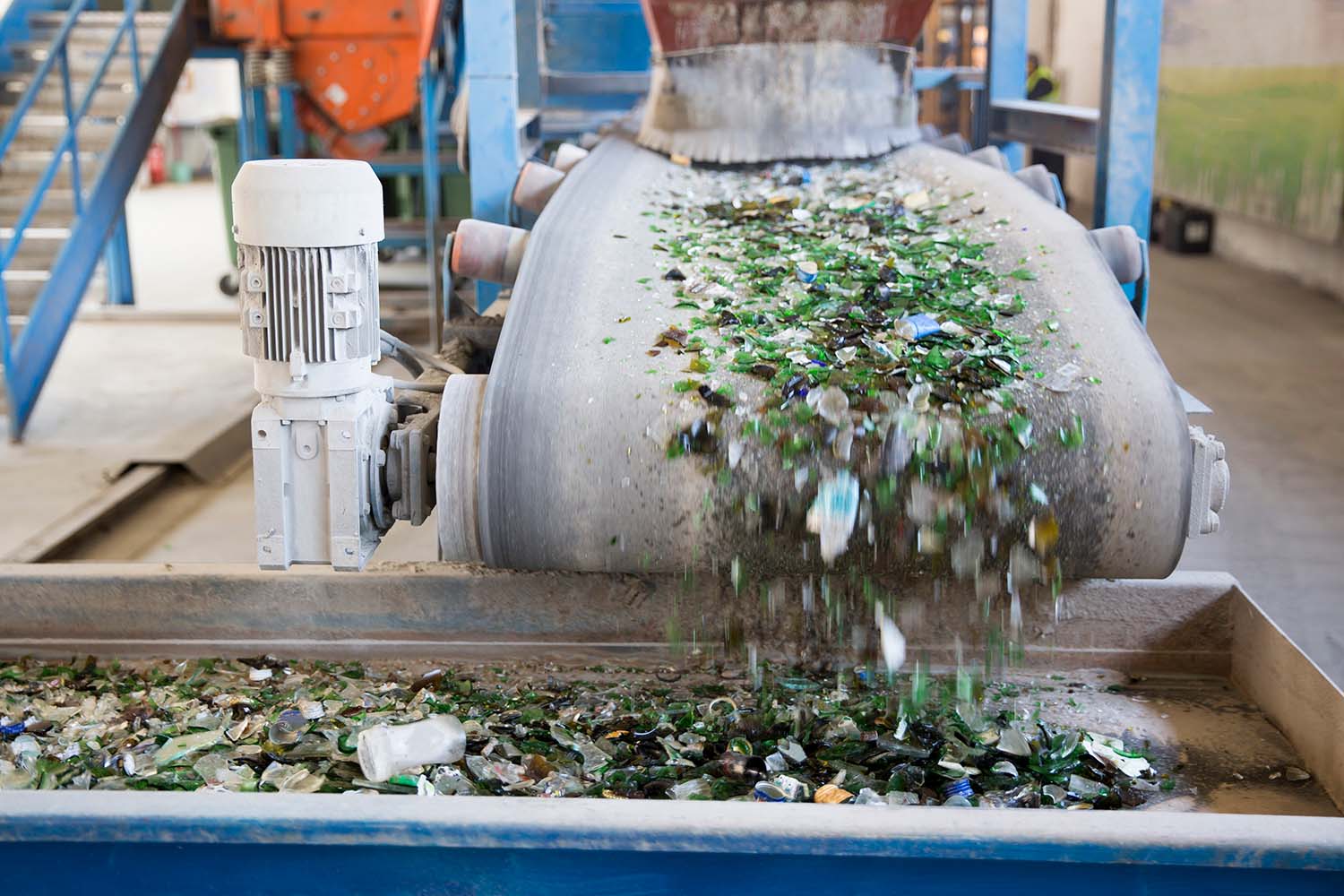Dust Collection for Recycling & Waste
Recycling centers and waste management facilities generate dust and odors. Keeping emissions within state and local regulation permissible limits is one concern. Filtering fumes and keeping odors under control to maintain good relations with neighboring businesses is also a priority. Many recycling centers process metals, glass, electronics, cardboard, and other materials which may create hazardous respirable particulate.
Challenges with Dust Collection
Dust suppression and collection. Recycling facilities and waste processing plants handle different types of material. Fine airborne dust is created during transport, conveying, processing, crushing, and cutting. Materials such as glass, metal, and plastics generate breathable dust which can be hazardous to workers over time. Collecting the dust at each point of generation is a priority.
Combustible Dust. Many materials in waste and recycling processing generate combustible dust which needs to be filtered out from the workplace.
System diversity. Each recycling facility should look at what type of materials are being processed, facility layout, and other factors to design a robust dust collection system. These may include cyclone collectors, baghouse dust collectors, cartridge dust collectors, wet scrubbers, and explosion prevention equipment.

Types of Recyclable Waste
- Aluminum and Other Metals
- Glass
- Corrugated and Regular Cardboard
- Plastic
- E-Waste
- Paper
- Textiles

